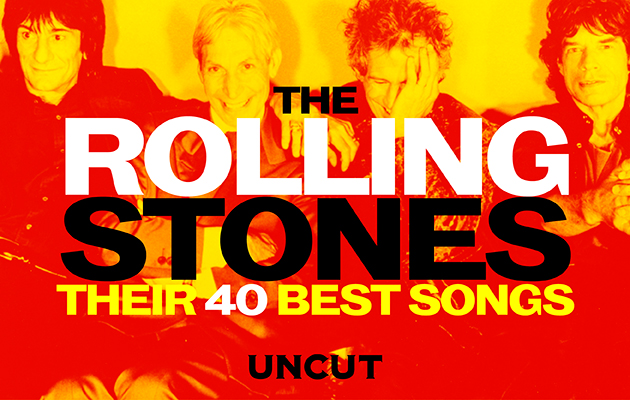11 YOU CAN’T ALWAYS GET WHAT YOU WANT
Let It Bleed album track, 1969
IAN McCULLOCH: It’s an obvious one – it’s been used on adverts, but that’s never bothered me. I love it. The intro’s great, it’s just a brilliant melody, the chorus, the way he sings it. Like all their best stuff, it’s never lost its appeal because it’s proper rock’n’roll. Actually, when I was a kid, having thick lips, I always felt I had more in common with the Jaggmeister anyway. Even though he couldn’t have punched his way out of a paper bag.
ADAM SWEETING: The angelic strains of the London Bach Choir singing the unaccompanied introduction was a vintage Stones touch, simultaneously sneering at the hidebound values of church and state while perversely revelling in the values of Olde England. For a group who had built a career on being stroppy and uncouth, this song shoulders an extraordinary burden of nostalgia and a sense of momentous events coming to a close. It seems to announce the end of Mick and Marianne Faithfull’s Cheyne Walk era, and announces the band’s disengagement from the street-level concerns which fuelled their early years. As for that “Mr Jimmy” line, producer Jimmy Miller was convinced that Jagger wrote it about him.
RICHARD HAWLEY: I was going to have “Jigsaw Puzzle” with its surreal, Dylan-esque lyrics, but this is more original, really. The title is an eternal truth for almost everyone – we all get by on what we’re given and do the lottery with hope in our pound, but also it’s pretty mental – a little country-funk groove that ends up by singing “Hallelujah!” to everyone who would like vintage wine but settles for a couple of lite ales. Ho, hum!
NICK HASTED: The other end of the Sixties, also the other end of Let It Bleed, which opens with “Gimme Shelter”: after the apocalypse storm warnings and rape fantasies preceding it comes this knowing check-list of pleasurable possibilities when you’re on the scene. Jagger checks out a demo, picks up some drugs, watches predatory debutantes gulp down men at the nightly debauch, and he feels fine. Church choirs and Al Kooper’s soul piano are a relief from the clenching tension of “Gimme Shelter”, and let the ’70s begin with the Stones feeling like they’re in heaven, sucking up the coke and glamorously fucking.
MIKE SCOTT: A magnificent and epochal recording/performance – probably their best ever.
____________________
10 WE LOVE YOU
Single, 1967
BOB STANLEY: I always find it incredible when people say Satanic Majesties is unconvincing psychedelia and thank God they did “Jumpin’ Jack Flash”, which is absolute bollocks. Obviously, “We Love You” is an amazing record as powerful as “Tomorrow Never Knows”, certainly a match for anything on The Piper At The Gates Of Dawn. “We Love You” is just so incredibly loud and frightening, with amazing
sound effects and production. Never known how much it was down to Brian Jones, whether it was his idea to get the harpsichords and sitars out. Maybe it was – after he died experimentation went out of the window. Then again, he’s such an unpleasant character it’s hard to imagine him coming up with these ideas. Also, the weird thing is Bill Wyman produced Satanic Majesties towards the end, so maybe it was him. But when you hear “Je Suis Un Rock Star”, it’s hard to believe.
JULIEN TEMPLE: This still sounds great. I love the sneering tone, the two-fingered joy that they got away with something. On this they were talking about the media but in a very hip way. Again, there was something about this production sound that still really appeals to me.
ANDY ROURKE: If you think about when they did this, it’s really ahead of its time, the whole production with the backing vocals and the piano on it. There’s just a top vibe to it. I love the promo film they made of it as well, the whole trial thing was just brilliant.
DAF: I was a big Beatles fan before I got into the Stones and I checked this out because Lennon and McCartney did backing vocals on it. I also remember it because the piano riff is really distinctive and it marked the Stones’ flirtation with psychedelia. The video was fantastic, too; I’d love a cardboard wig.
GEORGE CHKIANTZ: Brian’s Mellotron playing was a fucking miracle. It was a dreadful device – like a tape recorder with 50 or 60 tapes and a pinch wheel that goes down when you press each key, which slowed down the whole caboodle. For
him to play this thing meant he had to be anticipating the beat by variable amounts.
NICK HASTED: Recorded the month after The Beatles’ “All You Need is Love”, this more urgently paced, and obviously cynical, combative contribution to Britain’s Summer Of Love is an us-and-them taunt from a band on the run, a defiant, two-fingered retaliation to concerted establishment attempts to jail Jagger, Richards and Jones for drug use and general bad manners. The hunted footsteps and slamming jail doors punctuating the record, and the Jagger-as-Wilde promo reel that completes it, shows the distorted scale of the year’s persecution which, for all the song’s sly bravado, helped kill Jones, and cripple the Stones.



